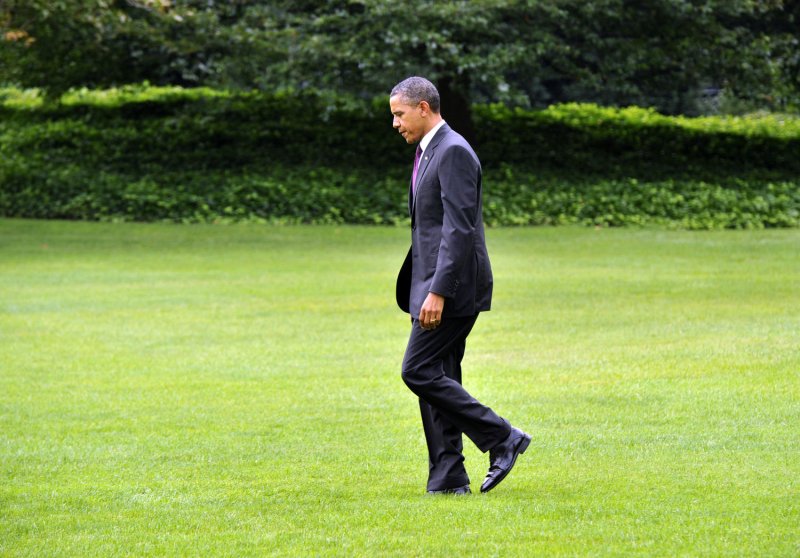1 of 2 | U.S. President Barack Obama departs on the South Lawn of the White House in Washington, DC, on September 22, 2011. He is en route to Cincinnati where he will tout his jobs bill at Brent Spence Bridge, which spans Kentucky and Ohio, and is in need of repair. Obama will be in the political backyards of Speaker of the House John Boehner, R-OH, and Senate Minority Leader Mitch McConnell, R-KY. UPI/Roger L. Wollenberg |
License Photo
WASHINGTON, Sept. 22 (UPI) -- U.S. President Obama and Education Secretary Arne Duncan are ready to broaden federal influence in schools by ending key elements of No Child Left Behind.
On Friday Obama and Duncan will outline plans to waive some of the law's tougher requirements, including the goal that every student demonstrate proficiency in math and reading by 2014 to avert sanctions against schools, The Washington Post reported.
In exchange for relief, states must adopt changes that could include expanding charter schools, tying teacher evaluation to student performance and strengthening academic standards.
"It's a momentous development," said Jack Jennings, president of the non-partisan Center on Education Policy, noting the administration was changing President George W. Bush's signature education law without congressional involvement.
Duncan said the administration had no choice because it wasn't clear Congress would correct No Child Left Behind's flaws.
"I feel compelled to do this," Duncan said recently. "My absolute preference is for Congress to fix it for the entire country. But there's a level of dysfunction in Congress that's paralyzing. And we're getting to the point that this law is holding back innovation, holding back progress. ... We need to get out of the way."
Some in Congress said the administration is overreaching, the Post said.
"This is all top-down stuff," said Rep. John Kline, R-Minn., chairman of the Committee on Education and the Workforce and whose state likely will seek a waiver.
Duncan, he said, is "using the simple power to grant waivers and expanding it to say, 'I will grant you waivers in exchange for changing public school policies to something that I would like.' And there's a growing sense that he really doesn't have the authority to do this."
No Child Left Behind gives the education secretary the authority to waive "any statutory or regulatory requirement" of the law, but is silent about the authority to set conditions for the waivers.
But several states back the administration's efforts, the Post said.
"I support the idea of waivers, because we think the way to assess a school is not solely through testing and proficiency," said Wisconsin Gov. Scott Walker, a Republican. "Overall, the reforms [Duncan] is looking at are really similar to what I'm looking at. What he's saying makes sense. We would be moving toward these changes even if the waivers came without conditions."















